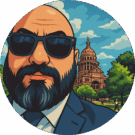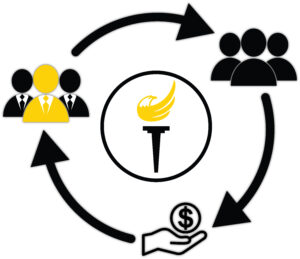The uproar over the Signal chat leak—where high-ranking U.S. officials inadvertently included a journalist in a conversation about military actions in Yemen—has dominated headlines. But while this scandal sparks debates over security protocols and government transparency, it risks diverting attention from the far more pressing issue: the devastating war in Yemen.
The Bigger Crisis: Yemen’s Ongoing War
For over a decade, Yemen has been caught in a relentless conflict, creating one of the worst humanitarian crises in the world. Millions of Yemenis are struggling with starvation, disease, and displacement, with civilians bearing the brunt of the violence. The war is a complex web of regional and international involvement, with Houthi rebels on one side and a Saudi-led coalition—backed by the U.S.—on the other. The result? A destabilized region and suffering on an unimaginable scale.
The Signal Chat Distraction
Yes, the Signal chat mishap raises serious concerns about how sensitive military information is handled. But let’s be clear: the real issue isn’t just the leak itself—it’s what was being discussed in that chat. Those conversations were about ongoing military actions in Yemen, a war that has been raging for years with direct U.S. involvement. The controversy around the chat shouldn’t distract from the fact that the U.S. has played a role in this conflict far beyond a single conversation.

U.S. Involvement
The U.S. has long provided military support to the Saudi-led coalition, a move that has drawn heavy criticism for fueling the conflict and worsening the humanitarian crisis. While officials often frame this involvement in terms of strategic alliances and counterterrorism efforts, critics argue that it has prolonged the suffering of millions. If anything, the Signal chat leak should reignite serious discussions about America’s broader role in Yemen—not just about who was accidentally looped into a conversation.
Keeping the Focus Where It Belongs
While security breaches and government missteps deserve scrutiny, they shouldn’t overshadow the urgent need for action in Yemen. The priority should be on ending the violence, pushing for a ceasefire, and ensuring humanitarian aid reaches those who need it most. The media plays a crucial role in shaping public attention, and right now, the focus should be on the war itself—not just a chat about it.
At the end of the day, the Signal chat incident is just a symptom of a much larger issue. The real story here isn’t a leaked conversation—it’s the ongoing catastrophe in Yemen that desperately needs the world’s attention.




